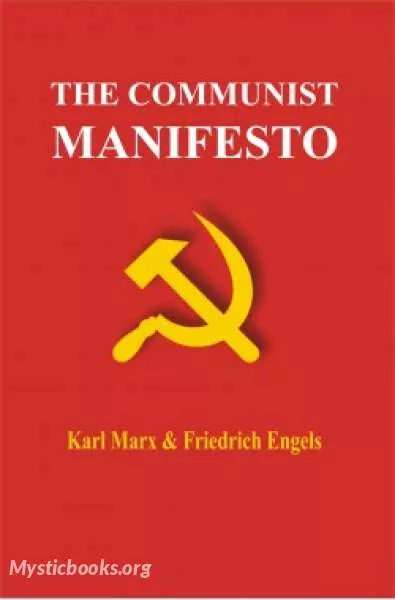
The Communist Manifesto
by Karl Marx
'The Communist Manifesto' Summary
The Communist Manifesto is divided into a preamble and four sections, the last of these a short conclusion. The introduction begins: "A spectre is haunting Europe—the spectre of communism. All the powers of old Europe have entered into a holy alliance to exorcise this spectre." Pointing out that parties everywhere—including those in government and those in the opposition—have flung the "branding reproach of communism" at each other, the authors infer from this that the powers-that-be acknowledge communism to be a power in itself. Subsequently, the introduction exhorts Communists to openly publish their views and aims, to "meet this nursery tale of the spectre of communism with a manifesto of the party itself".
The first section of the Manifesto, "Bourgeois and Proletarians", elucidates the materialist conception of history, that "the history of all hitherto existing society is the history of class struggles". Societies have always taken the form of an oppressed majority exploited under the yoke of an oppressive minority. In capitalism, the industrial working class, or proletariat, engage in class struggle against the owners of the means of production, the bourgeoisie. As before, this struggle will end in a revolution that restructures society, or the "common ruin of the contending classes". The bourgeoisie, through the "constant revolutionising of production [and] uninterrupted disturbance of all social conditions" have emerged as the supreme class in society, displacing all the old powers of feudalism. The bourgeoisie constantly exploits the proletariat for its labour power, creating profit for themselves and accumulating capital. However, in doing so the bourgeoisie serves as "its own grave-diggers"; the proletariat inevitably will become conscious of their own potential and rise to power through revolution, overthrowing the bourgeoisie.
"Proletarians and Communists", the second section, starts by stating the relationship of conscious communists to the rest of the working class. The communists' party will not oppose other working-class parties, but unlike them, it will express the general will and defend the common interests of the world's proletariat as a whole, independent of all nationalities. The section goes on to defend communism from various objections, including claims that it advocates communal prostitution or disincentivises people from working. The section ends by outlining a set of short-term demands—among them a progressive income tax; abolition of inheritances and private property; abolition of child labour; free public education; nationalisation of the means of transport and communication; centralisation of credit via a national bank; expansion of publicly owned land, etc.—the implementation of which would result in the precursor to a stateless and classless society.
The third section, "Socialist and Communist Literature", distinguishes communism from other socialist doctrines prevalent at the time—these being broadly categorised as Reactionary Socialism; Conservative or Bourgeois Socialism; and Critical-Utopian Socialism and Communism. While the degree of reproach toward rival perspectives varies, all are dismissed for advocating reformism and failing to recognise the pre-eminent revolutionary role of the working class.
"Position of the Communists in Relation to the Various Opposition Parties", the concluding section of the Manifesto, briefly discusses the communist position on struggles in specific countries in the mid-nineteenth century such as France, Switzerland, Poland and Germany, this last being "on the eve of a bourgeois revolution" and predicts that a world revolution will soon follow. It ends by declaring an alliance with the democratic socialists, boldly supporting other communist revolutions and calling for united international proletarian action—"Working Men of All Countries, Unite!".
Book Details
Language
EnglishOriginal Language
GermanPublished In
1848Authors
Download eBooks
Listen/Download Audiobook
Related books

Verbrecher aus verlorener Ehre by Friedrich Schiller
Friedrich Schiller's "Verbrecher aus verlorener Ehre" is a non-fiction account of a true crime story, exploring themes of honor, reputation, and the d...
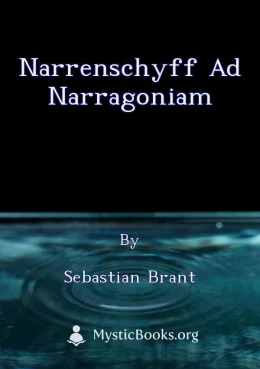
Narrenschyff ad Narragoniam by Sebastian Brant
Sebastian Brant's 'Narrenschiff' is a late medieval satire that takes the form of a ship carrying over 100 fools on a journey to the fictional land of...

Herr und Knecht by Leo Tolstoy
During a fierce snowstorm, a wealthy merchant and his loyal servant become lost and stranded in the wilderness. As they face the prospect of death, th...
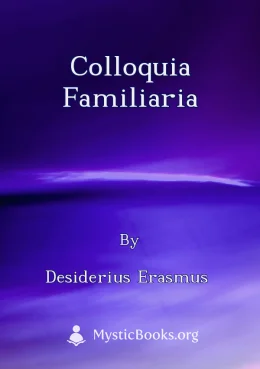
Colloquia Familiaria by Desiderius Erasmus
Colloquia Familiaria is a collection of Latin dialogues written by Desiderius Erasmus. First published in 1518 and expanded until 1533, it is consider...
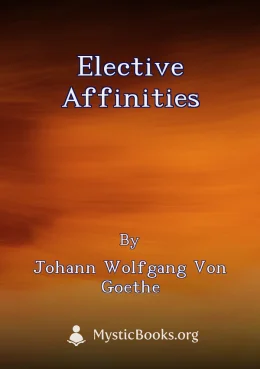
Elective Affinities by Johann Wolfgang von Goethe
Elective Affinities explores the complexities of human relationships, particularly within the confines of marriage and societal expectations. It exami...
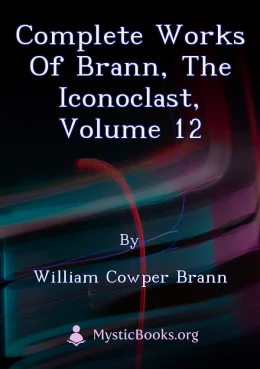
Complete Works of Brann, The Iconoclast, Volume 12 by William Cowper Brann
This volume of 'The Iconoclast' by William Cowper Brann presents a collection of newspaper editorials, accounts of his death, and a few of his scathin...
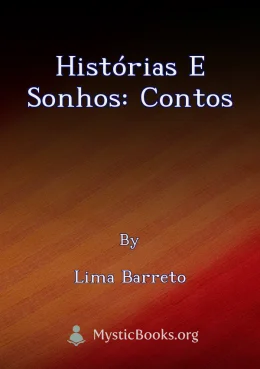
Histórias e sonhos: contos by Lima Barreto
This collection of short stories by Lima Barreto, a renowned Brazilian author, presents a sharp critique of Brazilian society and politics. Barreto's...
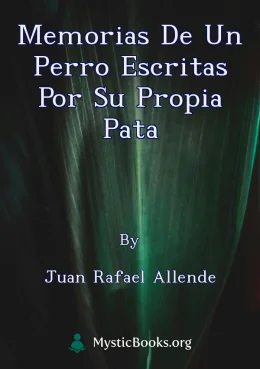
Memorias de un perro escritas por su propia pata by Juan Rafael Allende
A satirical novel told from the perspective of a stray dog, it offers a humorous and critical look at Chilean society and politics in the late 19th ce...

Democracy - An American Novel by Henry Brooks Adams
Published anonymously in 1880, *Democracy* is a satirical novel that offers a sharp critique of American politics during the Gilded Age. The story fol...

Nachlaß des Diogenes von Sinope by Christoph Martin Wieland
Christoph Martin Wieland's "Nachlaß des Diogenes von Sinope" is a satirical novel that uses the figure of the famous Cynic philosopher Diogenes of Sin...
Reviews for The Communist Manifesto
No reviews posted or approved, yet...

